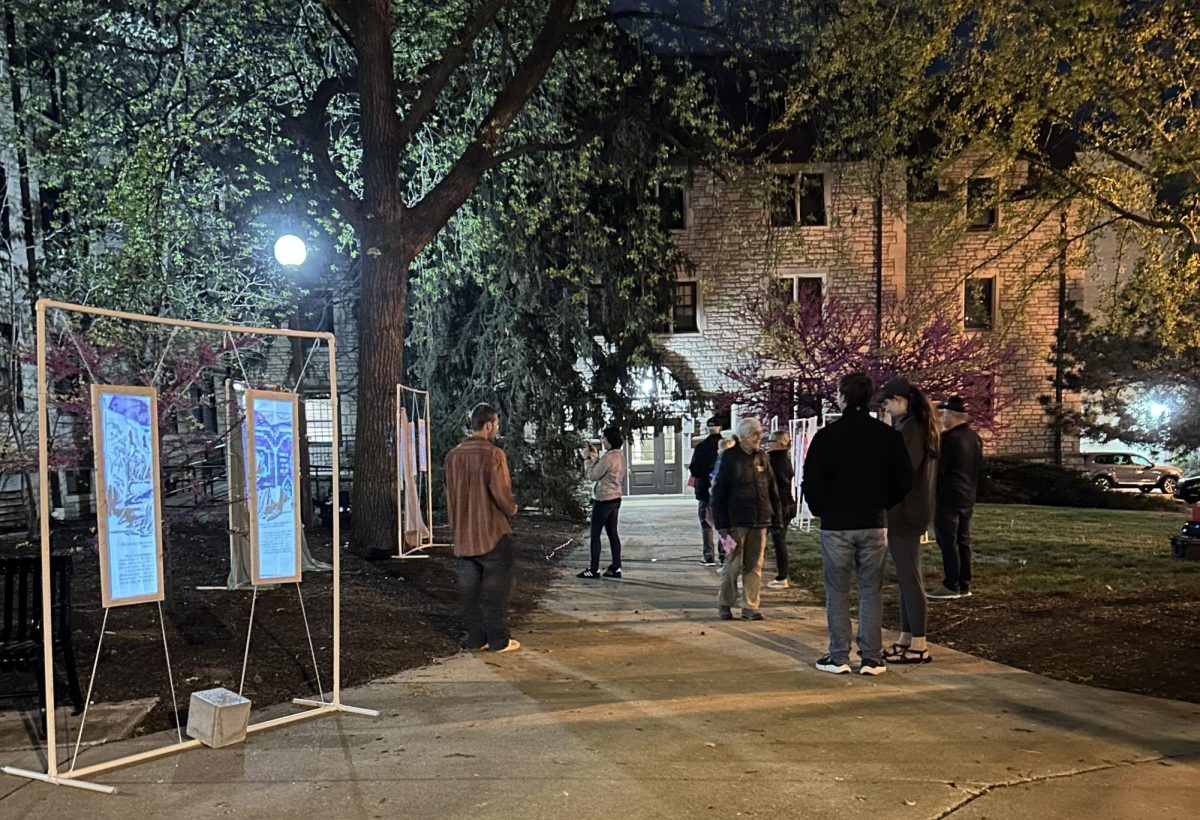The MU Department of Theatre will premiere the tragicomedy “Endgame” Feb. 4 at Corner Playhouse. The play will run for five days.
Written by Samuel Beckett, the father of absurdist theatre, “Endgame” tells the story of four people – a mother, a father, a cynical son and a servant – as they face the end of the world. The family of characters are immobilized throughout the entire play, leaving the movement to the family’s servant.
The small cast of four created an intimate kind of preparation. Graduate student William Palmer plays the part of the father, Negg. Although he is studying to be a professor, he is still able to take part in stage productions.
“It’s a great cast,” Palmer said. “They’re all very dedicated to working on the craft and working with such an interesting script.”
Due to his habit of writing his plays in French and then translating the script back to English, Beckett’s “Endgame” has a musicality to its language, Palmer said. He said the small cast struggled to invoke the poetic sound into the script and still keep the language realistic.
Graduate student Zarif Bakirova plays the character Nell, Negg’s wife. Despite the absurdist style of the script, Bakirova was still able to connect with her character Nell.
“She’s not one type (of character),” Bakirova said. “She’s not only tragic or only angry or only sassy.”
Sophomore Michael Bayler plays the son, Hamm, and senior Alex Givens is Clov, the family’s servant.
Working closely with the cast is assistant director Aaron Scully, known for directing a scene in the production “Water by the Spoonful,” which is now headed to the Stage Directors and Choreographers Nationals in Washington D.C. this coming April.
Through the interactions between these four characters, Beckett does not reveal to the audience the meaning behind “Endgame,” Palmer said. Several theories shroud the setting behind “Endgame.” Because of Beckett’s involvement in the French Resistance, many believe “Endgame” to be a mirror of the events during World War II. The play was published in the late ‘50s
“Many of the atrocities in the Holocaust definitely influenced how (Beckett) viewed the world,” Palmer said. “I think it definitely plays a role in the creation, especially in this play.”
Set Designer Jon Drtina took this theory of Holocaust influence and incorporated it into the set’s design. The paint texturing the backdrop behind the characters is based on images of the gas chambers used to exterminate millions during World War II. Etched onto the chamber walls are the residue of the gas, leaving behind a copper green color and texture. This residue is illustrated on the stage.
Despite the tragic influences, “Endgame” is not simply a cynical tale. It is also well known for its comedic elements, seen in the absurdity of the script. As Bakirova’s character says at one point in the play, “There is nothing funnier than unhappiness.”






